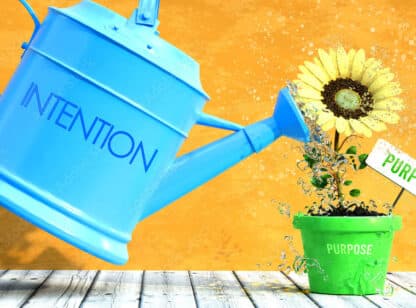“Only I can set her free; my inner child, the deepest part of me.” – Dr. Amy
In 2004, when I wrote my doctoral dissertation, “Study of Attachment – The Impact of Early Attachment and Current Functioning Through Relational Models of Therapy,” I could not foresee the impact and importance this work would have in my psychotherapy practice today. Although I utilize many different and individualized theoretical orientations with my clients, inner child work has proven to be a viable path towards discovery, healing and self-care.
The first question one might ask themselves is, do I deserve love? The wounded inner child might be more familiar with negativity, conflict, chaos, trauma and abandonment if they were unable to form strong attachment bonds of trust with a primary caregiver. A child that grows up in a toxic, stressful environment might think they are responsible for their family dysfunction and may wonder if they are bad, wrong, ugly, dumb, a failure and not worthy of love.
In this type of mentally and emotionally unhealthy environment, a child can dissociate or shut off from their emotional pain and only exist living in survival mode. The wounded child molds to the expectations of their environment forming a “false self” as relayed in the book, Home Coming: Reclaiming and Championing Your Inner Child, by John Bradshaw.
Fast forward to adulthood. When your inner child feels ignored and unsafe, watch out! It’s no surprise when someone presents to therapy anxious, afraid, emotionally stunted and/or angry, utilizing codependent, addictive or other maladaptive behaviors to escape their emotional pain. John Bradshaw posits, “The wounded inner child contaminates intimacy in relationships because he has no sense of his authentic self.” He goes on to say, “It is impossible to be intimate if you have no sense of self.”
Many people form relationships feeling like half-empty vessels, hoping their partner will fill their unmet and unrealized needs. If a child doesn’t feel that they are enough or unconditionally prized and cherished, they will subconsciously seek relationships to fill the emptiness.
No one can fill the emptiness but you – and there is hope.
Recognize your inner child. Visualize her. What age is she? What is she wearing. What’s the expression on her face? Re-parent her by telling her you’re there for her and that she’s enough. Tell her you love her and that no one will ever hurt her again. She might be wary, as she’s not used to being championed. Don’t give up on her. Practice patience and give her time. The gift? Dialoguing with your inner child can allow your core adult self to mature and flourish since your inner child can now have… you guessed it, a childhood.
We all want to be purposeful and productive, and yet keep the sincerity and spontaneity of the child within. You’ll know when your inner child is happy and emotionally safe. Mark Twain said it best, “Sing like no one is listening, love like you’ve never been hurt, dance like no one is watching, and live like it is heaven on earth.” Your child within can help you see the miraculous in the mundane and the extraordinary in the ordinary.
Don’t wait too long to start, for the child within is waiting right inside your heart.
Dr. Amy Austin is a licensed marriage and family therapist (MFC#41252) and doctor of clinical psychology in Rancho Mirage. She can be reached at (760) 774.0047.
















































Comments (11)
I look forward to Dr. Amy’s articles. Learning how to nurture one’s inner child is incredibly important. We teach others how we wish to be treated from how we treat ourselves. Well done!
Thank you, Ari! We are very fortunate to have her as a contributor and appreciate your kind words.
Thank you for reading Desert Health!
Ari, thank you! Appreciate this valuable insight and you taking the time to comment.
I truly felt this. Great skill we can all learn.
Thank you for taking the time to leave a note, Hannah.
We are lucky to have Dr. Amy as a contributor, and thank you for reading Desert Health!
Lauren
Your inner child thanks you Hannah! Thanks so much for your lovely comments.
This article was so profound & written so eloquently.
Thank you so very much, Heather! We appreciate your kind words and will pass them on to Dr. Amy.
Lauren
Thank you Heather. So appreciate your comment and hope its message enriches you and yours.
Beautifully written article by a very skilled and caring therapist.
Thank you Kim! Glad you enjoyed and so appreciate you taking the time to leave such a lovely comment.
Dr. Amy